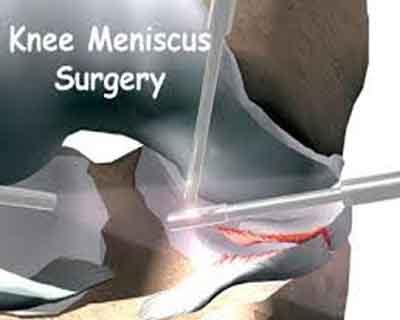- Home
- Editorial
- News
- Practice Guidelines
- Anesthesiology Guidelines
- Cancer Guidelines
- Cardiac Sciences Guidelines
- Critical Care Guidelines
- Dentistry Guidelines
- Dermatology Guidelines
- Diabetes and Endo Guidelines
- Diagnostics Guidelines
- ENT Guidelines
- Featured Practice Guidelines
- Gastroenterology Guidelines
- Geriatrics Guidelines
- Medicine Guidelines
- Nephrology Guidelines
- Neurosciences Guidelines
- Obs and Gynae Guidelines
- Ophthalmology Guidelines
- Orthopaedics Guidelines
- Paediatrics Guidelines
- Psychiatry Guidelines
- Pulmonology Guidelines
- Radiology Guidelines
- Surgery Guidelines
- Urology Guidelines
Intraoperative Platelet-rich plasma reduces meniscus repair failure risk, finds study

According to research presented at the Annual Meeting of the American Orthopedic Society of Sports Medicine, use of platelet-rich plasma therapy can reduce the risk of a second meniscus failure after the operation but does not seem to protect patients who have had surgery to repair an anterior cruciate ligament.
Researchers at The Ohio State University in Columbus sought to determine whether intraoperative Platelet-rich plasma affects meniscus repair failure risk and whether the effect of PRP on meniscus failure risk is influenced by ACL reconstruction status or by Platelet-rich plasma preparation.
Platelet-rich plasma therapy involves the extraction of blood from the patient, which is then centrifuged to obtain a concentrated suspension of platelets. It then undergoes a two-stage centrifugation process to separate the solid and liquid components of the anticoagulated blood. PRP owes its therapeutic use to the growth factors released by the platelets which are claimed to possess multiple regenerative properties.
The meniscus is a piece of cartilage that acts as a shock absorber between the shinbone and thighbone.
The researchers randomized 550 patients into two main groups: patients who underwent meniscus repair surgery with PRP and those who did not receive PRP therapy. Patients with concurrent ACL reconstruction were assessed for meniscus repair failure within three years.
Patients who did not receive PRP therapy experienced a meniscus failure rate of 17 percent while those who were given PRP had a 14.7 percent failure rate. The effect of PRP on meniscus failure risk was dependent on ACL injury status--those who had only a meniscus PRP was associated with a lower risk of failure but those with ACL surgery, PRP was not associated with a lower risk of failure.
"PRP preparations utilized in the current study had a substantial protective effect on isolated meniscus repair failure risk over three years," said Dr. Joshua Scott Everhart. "In the setting of concomitant ACL reconstruction, intraoperative PRP does not reduce meniscus repair failure risk."

Disclaimer: This site is primarily intended for healthcare professionals. Any content/information on this website does not replace the advice of medical and/or health professionals and should not be construed as medical/diagnostic advice/endorsement or prescription. Use of this site is subject to our terms of use, privacy policy, advertisement policy. © 2020 Minerva Medical Treatment Pvt Ltd